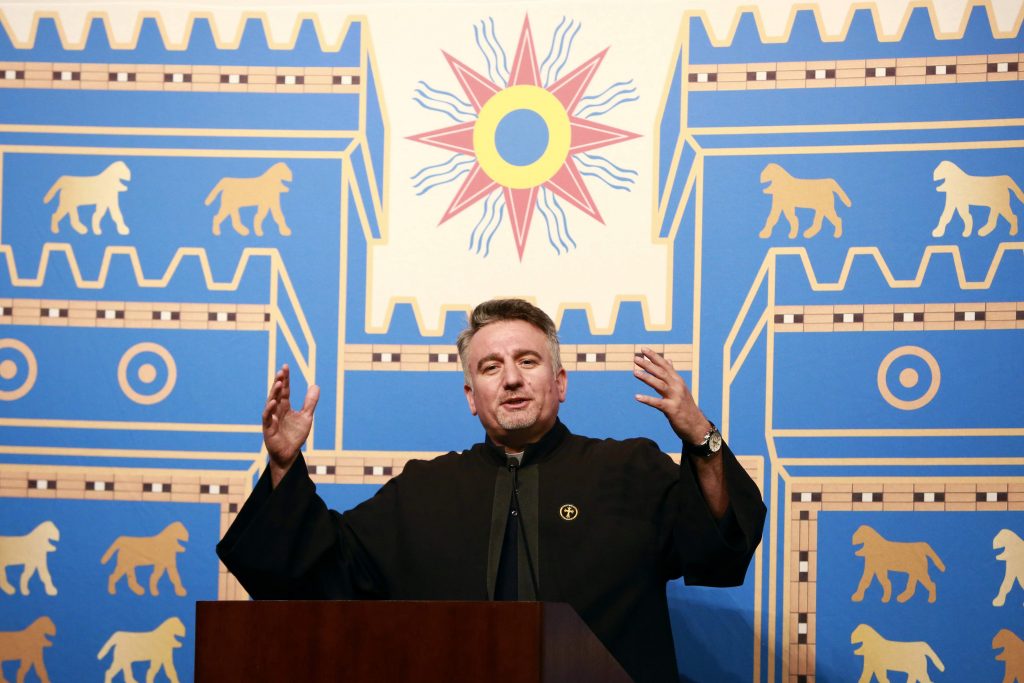We are a Church of saints and martyrs.
The vast majority are hidden in the humble witness of the everyday. In her liturgical calendar, the Church remembers “officially” only a select number of the countless saints and martyrs there have been down through the centuries.
On Oct. 16, we rejoiced as Pope Francis canonized seven new saints, including one of my personal heroes, St. José Sanchez del Rio, a young martyr from Mexico, and two others who are important to me and to the family of God here in Los Angeles — the Argentinian “Gaucho priest,” St. José Gabriel del Rosario Brochero, and St. Elizabeth of the Trinity, a Carmelite mystic from 20th century France.
The Church holds up certain saints because in them we can see the beauty of the Christian life, the promise of holiness and the mystery of the Church.
But, as I said, most of the Church’s saints and martyrs lead hidden lives, known only to those whose lives they personally touched. We have all known “saints” who lived in our families and in our parishes, men and women who live with humility and faith, and seek to glorify God in the course of their ordinary daily lives.
There are hidden saints, and there are hidden martyrs, too.
We are relatively privileged here in the United States. The Church’s enemies so far have only resorted to the coercive means of law, policy and public opinion to pressure us and discriminate against our beliefs and institutions.
In the Middle East, Christians face outright oppression and violence.
This week I am meeting with a representative of Iraq’s persecuted Christians, Father Douglas Bazi, who is visiting Los Angeles to raise awareness of the suffering of his people.
Father Bazi is a Chaldean and a parish priest in Erbil, in the northeast corner of Iraq, about 50 miles east of Mosul — an ancient and once-thriving Christian city that is now the self-declared capital of the Islamic State.
The Christians in Erbil still pray in Aramaic, the language that Jesus spoke. For many years, they have endured humiliation and second-class citizen status as minorities living under Islamic law. In recent years, discrimination has turned to violent persecution.
The Islamic State has already driven more than 150,000 Christians out of Iraq. Believers have been murdered on a mass scale. Christian women and girls are being sold into sex slavery. Father Bazi himself was kidnapped and tortured — his captors pounded his teeth out with a hammer and broke his back and burned his body in many places.
Earlier this year, the U.S. State Department finally took the step of declaring the Islamic State’s war against Christians in the Middle East as a “genocide.”
The statement was long overdue — Pope Francis has been calling Christian persecution in the region a “genocide” for several years, recognizing that the Islamic State or ISIS is trying to drive the Christian population into extinction.
As I write, the Iraqi government, backed by U.S. forces, has launched a military offensive to defeat ISIS and reclaim Mosul. We need to pray for the thousands of innocents who will suffer harm and displacement during these attacks. And, after the fighting is ended, we need to pray for reconciliation and the conversion of hearts and minds.
In the face of violence, the Christian must always continue on the path of love, forgiveness and the search for reconciliation and understanding. No matter how brutal the violence, no matter how hard it is to forgive, following Jesus means we are called to love our enemies and to pray for those who persecute us.
Amid the persecutions going on today, we hear stories of great holiness and heroic gestures of mercy and forgiveness. These testimonies again tell us that we are a Church that is alive with the witness of saints and martyrs — many of them we will never know or hear about.
We are also a universal Church, a worldwide family of God. That means when our brothers and sisters are suffering, even half way around the world, we need to come to their aid in solidarity and struggles alongside them for justice.
When we read about the tragedies in the Middle East, we need to remember that Christianity was alive in this part of the world from the earliest days. Indeed, St. Paul was converted to the faith by a Syrian Christian named Ananias who lived in Damascus.
Pray for me and I will pray for you this week.
And together let us ask our Blessed Mother Mary to comfort and guide all those who are suffering persecution in our world today.
To assist the persecuted Church in Iraq, you can contribute to the Knights of Columbus’ relief effort: www.kofc.org/un/en/charities/christian-relief/index.html.

